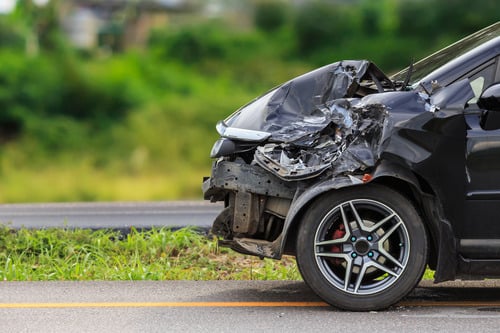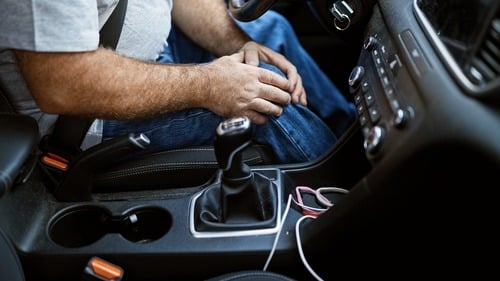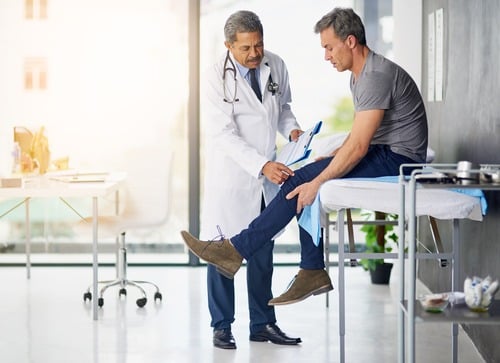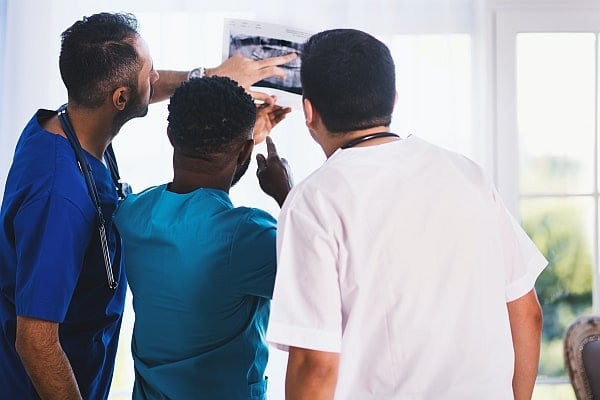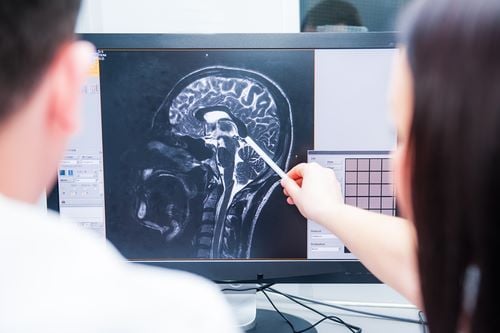Car accidents can happen unexpectedly, leaving individuals with a range of injuries that vary in severity. Whether you experience visible injuries or hidden damage, seeking medical care after a car accident is crucial for your recovery and well-being. From choosing the right healthcare provider to understanding your insurance and legal options, we’ll help you understand the necessary steps to ensure the best possible outcome after an accident.
In this blog, we’ll guide you through the essential steps to take after a car accident, including the importance of seeing an experienced Atlanta car accident doctor to ensure proper treatment and recovery from your injuries.
Types of Car Accident Injuries
Car accidents can cause a wide range of injuries, some of which may be immediately apparent, while others may develop over time. Below are some of the most common car crash injuries.
Whiplash and Neck Injuries
Whiplash is a common injury caused by sudden, forceful neck movement during a car accident. It often leads to neck pain, stiffness, and headaches. This injury can range from mild to severe, and prompt medical care is crucial to avoid long-term discomfort or chronic pain.
Back and Spinal Cord Injuries
Back and spinal cord injuries are serious and can have long-lasting effects on a person’s mobility. A car crash can lead to fractures or herniated discs in the spine, which can cause pain, numbness, or even paralysis. Immediate medical attention can help determine the extent of the injury and prevent further damage.
Head Injuries and Concussions
Head injuries, such as concussions or traumatic brain injuries (TBI), are common in car accidents, especially during collisions where the head strikes a surface or is jolted violently. Even mild head trauma can lead to lasting effects, such as dizziness, memory issues, and difficulty concentrating. It’s important to seek immediate medical care for any head injury.
Broken Bones and Fractures
Broken bones are common after car accidents, especially in the arms, legs, ribs, and collarbones. These injuries often require surgical or non-surgical treatment to heal properly. Immediate care can prevent complications like infection and ensure proper alignment for healing.
Soft Tissue Injuries
Soft tissue injuries, including muscle strains, ligament sprains, and bruising, are common in car accidents. These injuries can be painful and may take weeks or months to heal fully. Even minor injuries can lead to chronic pain if not treated early.
Internal Injuries
Internal injuries, such as internal bleeding or organ damage, may not be immediately visible after a car crash. These injuries are often life-threatening if left untreated. Seeking medical care right away can help identify and treat these injuries before they cause serious harm.
Immediate Steps After a Car Accident
Taking quick and appropriate action after a car accident is crucial for your health, safety, and any potential legal or insurance matters. Follow these steps to ensure your well-being and protect your rights.
Assessing the Situation and Calling for Help
After a car crash, the first step is to assess your condition and the condition of others involved. Check for visible injuries and determine if anyone needs immediate medical assistance. Call emergency services right away if there are serious injuries or if the situation requires medical attention.
When to Go to the Emergency Room
If you have serious injuries, such as severe pain, head trauma, or difficulty breathing, you should go to the emergency room immediately. Even if injuries seem minor, it’s important to get checked by a medical professional. Some injuries, like internal bleeding or soft tissue damage, may not be visible right away.
Documenting Injuries and the Accident Scene
Documenting the scene and your injuries is vital for both medical and legal reasons. Take photos of the accident site, vehicle damage, and any visible injuries. Make sure to collect witness statements and write down the details of the accident, including the time, location, and circumstances. This information will help with insurance claims and any personal injury case.
Types of Medical Professionals for Car Accident Care
Different types of medical professionals play key roles in treating car accident injuries. The right care can significantly improve recovery outcomes and help manage pain and complications.
Emergency Room Physicians
Emergency room physicians are the first line of defense when it comes to treating serious or life-threatening injuries after a car accident. They provide immediate care, conduct diagnostic tests, and stabilize patients before referring them to specialists if necessary. Their role is critical for managing visible and hidden injuries, such as internal bleeding or spinal cord damage.
General Practitioners (GPs)
General practitioners provide initial evaluations following a car accident. They assess injuries, recommend treatment options, and may refer patients to specialists such as orthopedic surgeons or neurologists for further care. GPs also manage follow-up care, ensuring that recovery is progressing as expected.
Orthopedic Specialists
Orthopedic specialists treat musculoskeletal injuries, including broken bones, fractures, and soft tissue damage. After a car accident, they play a key role in diagnosing and treating injuries to the bones, muscles, and joints. These specialists may recommend both surgical and non-surgical options to aid in recovery.
Neurologists
Neurologists are important for diagnosing and treating injuries related to the brain and spinal cord. Traumatic brain injuries (TBI) and spinal cord injuries often require specialized care to prevent long-term neurological damage. Neurologists help manage both acute symptoms and long-term effects of head and spine injuries.
Chiropractors
Chiropractors offer non-invasive treatments to manage spine and neck injuries, such as those caused by whiplash. They use techniques like spinal adjustments to reduce pain and improve mobility. Chiropractic care is often beneficial for patients with neck pain or soft tissue injuries resulting from car accidents.
Physical Therapists
Physical therapists help patients regain strength, mobility, and flexibility after a car accident. They design rehabilitation programs to treat injuries like sprains, strains, and fractures. These programs focus on restoring function and preventing future injuries through exercises and manual therapy.
Pain Management Specialists
Pain management specialists focus on addressing chronic pain caused by injuries sustained in a car accident. They use a variety of techniques, including medication, injections, and physical therapy, to manage acute and ongoing pain. This is especially important for patients with long-term pain after soft tissue injuries or spinal injuries.
Mental Health Professionals
Car accidents can lead to psychological trauma, including post-traumatic stress disorder (PTSD) or anxiety. Mental health professionals provide counseling and therapy to help individuals cope with emotional stress. Addressing mental health is an important part of overall recovery from an accident.
The Importance of Timely Medical Care
Timely medical care after a car accident is crucial for both physical recovery and legal matters. Early treatment can prevent long-term complications and ensure a smoother recovery process.
Hidden Injuries and Delayed Symptoms
Some injuries, such as internal bleeding, soft tissue damage, or concussions, may not be immediately visible. Delayed symptoms can worsen over time, leading to chronic pain or permanent damage. Seeking prompt medical care helps identify these injuries early, improving the chances of successful treatment.
Legal Implications of Prompt Medical Attention
Prompt medical attention plays a critical role in personal injury claims. Medical records that show immediate care after an accident strengthen your case with insurance companies or in court. Delays in seeking treatment can lead to difficulties in proving the severity of your injuries, which may affect your compensation.
Choosing the Right Healthcare Provider
Selecting the right healthcare provider after a car accident is essential for proper treatment and recovery. A qualified professional will help manage injuries and guide you through the recovery process.
Factors to Consider When Selecting a Car Accident Doctor
When choosing a healthcare provider, consider their experience in treating car accident injuries. Look for a doctor or specialist who understands common injuries like whiplash, spinal injuries, and traumatic brain injuries (TBI). Ensure they offer comprehensive care and have a good track record of helping car accident victims recover.
Specialized Clinics vs. General Practices
Specialized clinics typically have a team of professionals focused on treating car accident injuries. They may offer a more coordinated approach to care, with access to physical therapists, pain management specialists, and chiropractors. General practices may provide initial care and referrals but might not have the resources for extensive treatment and rehabilitation. Decide based on the severity of your injuries and the type of care you need.
Treatment and Recovery Process
The treatment and recovery process after a car accident involves multiple stages to ensure full healing. Proper planning and consistent follow-up care are key to returning to normal life.
Creating a Comprehensive Treatment Plan
A comprehensive treatment plan begins with an initial evaluation by a medical professional who will assess the extent of your injuries. This plan may include a combination of emergency care, medication, physical therapy, and specialist referrals. The goal is to address both immediate and long-term recovery needs.
Long-Term Care and Follow-Up Appointments
After the initial treatment, long-term care is essential to ensure that injuries heal properly and to manage any ongoing pain. Follow-up appointments with specialists, such as orthopedic surgeons or pain management professionals, help track progress and adjust treatment as needed. Continuous care ensures that any complications are addressed promptly, allowing for a full recovery.
Documenting Your Medical Care
Accurate documentation of your medical care is essential for managing your recovery and supporting any insurance or legal claims. Keeping thorough records helps ensure that you receive the compensation you deserve.
Keeping Records for Insurance and Legal Purposes
Documenting every step of your treatment process is crucial for insurance claims and personal injury cases. Keep copies of all medical records, including diagnoses, treatments, medications, and receipts for medical expenses. This documentation will serve as evidence if you need to file a claim with your insurance company or pursue legal action.
Working with Your Doctor to Document Injuries Properly
It is important to work closely with your doctor to ensure that all injuries, both visible and hidden, are fully documented. Ask your doctor to note any new symptoms or changes in your condition during follow-up visits. This will create a complete record that supports your claim and helps prevent delays in treatment or compensation.
Insurance and Legal Considerations
Understanding your insurance coverage and knowing when to consult a personal injury attorney are key steps after a car accident. These considerations can help ensure you receive the compensation and treatment you deserve.
Understanding Your Insurance Coverage
It’s important to review your car insurance policy to understand what is covered in the event of an accident. Coverage options such as medical payments, personal injury protection (PIP), and liability insurance can help cover medical expenses and property damage. Knowing your coverage limits will guide your next steps when seeking treatment and filing claims.
When to Consult a Personal Injury Attorney
If you have sustained serious injuries or if liability is unclear, consulting a personal injury attorney may be necessary. An attorney can help you navigate insurance claims, negotiate with insurance companies, and ensure that you receive fair compensation for medical bills, lost wages, and pain and suffering. Legal support becomes particularly important if there are disputes about the accident or injuries sustained.
Consult With an Experienced Atlanta Car Accident Doctor ASAP!
If you’ve been involved in a car accident, it’s crucial to seek medical care as soon as possible to prevent long-term complications. At Hurt 911®, our team of experienced Atlanta car accident doctors is here to provide the comprehensive care you need. We specialize in diagnosing and treating injuries from car accidents, ensuring you receive the right treatment for a full recovery.
Contact us at 404-687-9000 to schedule an appointment with us today!
